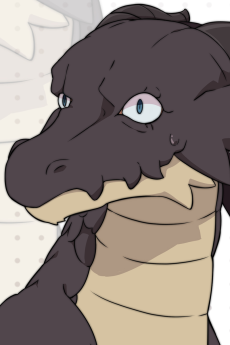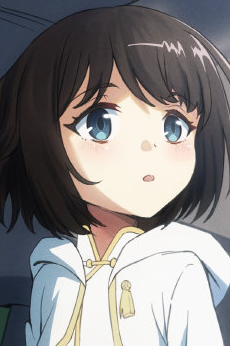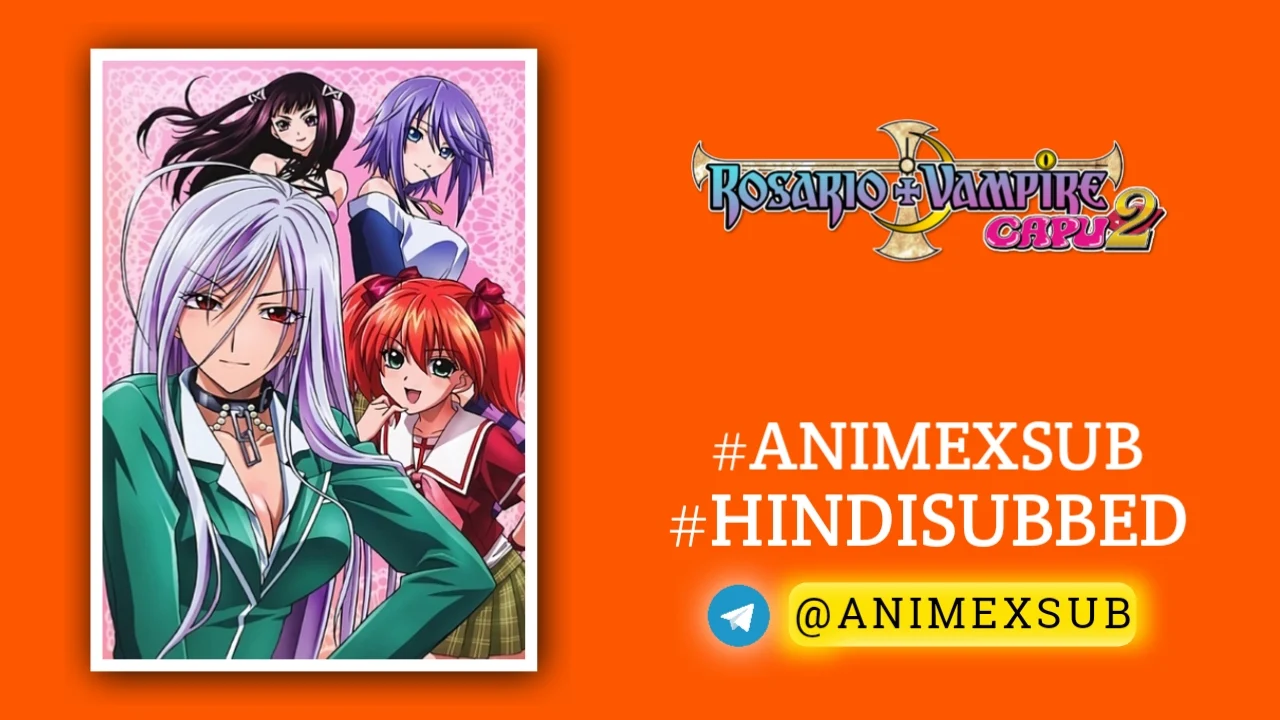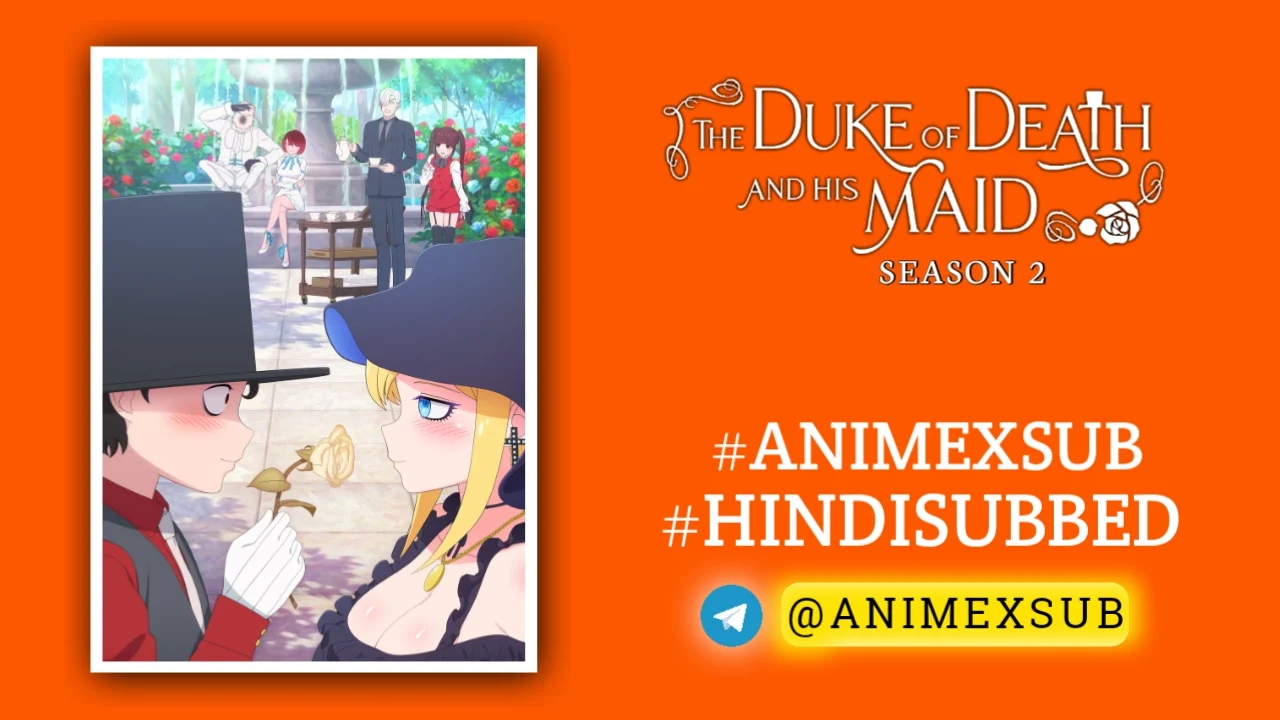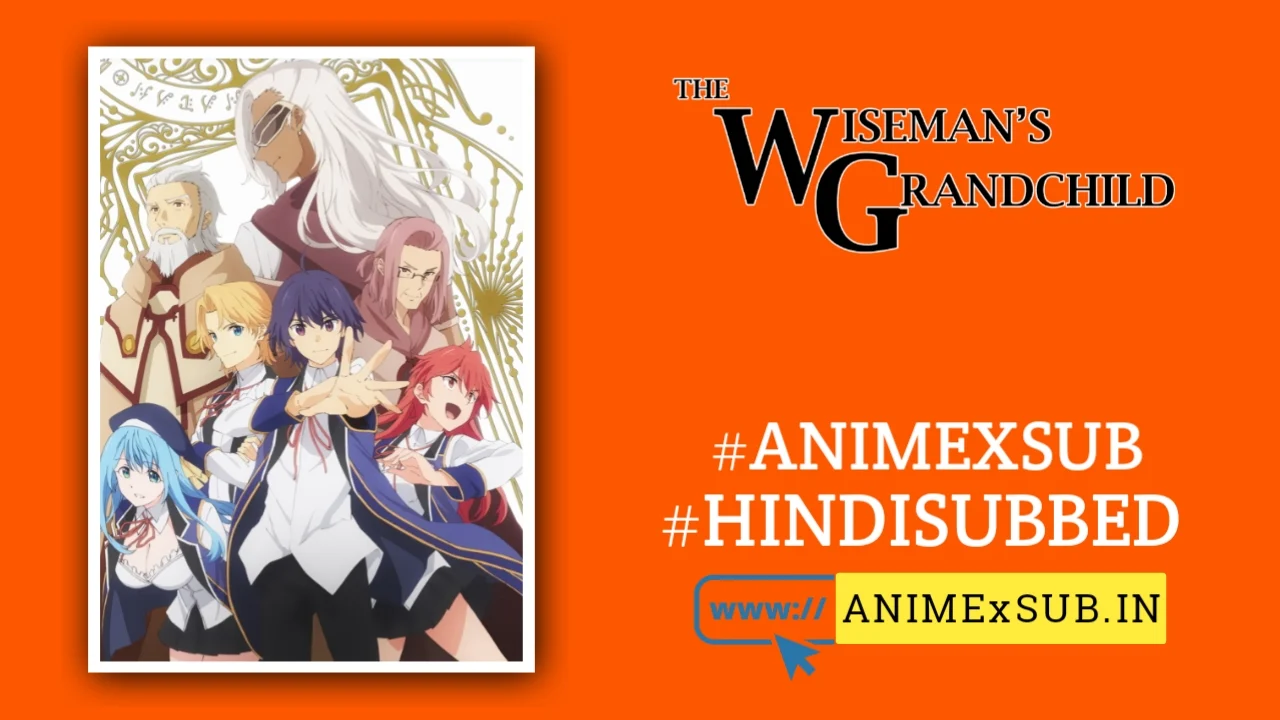
A Herbivorous Dragon of 5,000 Years Gets Unfairly Villainized Hindi Subbed [12/12] {Complete}
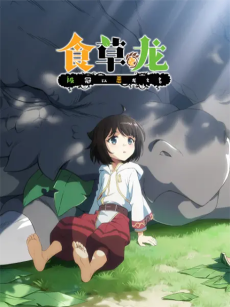
Shicao Lao Long Bei Guanyi E Long Zhi Ming
A Herbivorous Dragon of 5,000 Years Gets Unfairly VillainizedSynopsis
A 5000-year old vegan dragon was living peacefully when one day a young girl showed up in his cave. She offered herself as a sacrifice in order to gain favor for her village. He played along as the great "Evil Dragon, the Demon Lord's Army Leader" in order to get rid of her. However, his little white lie awoken her hidden powers and his peaceful life suddenly ended.
Watch Trailer
Characters
Echoes of Eternal Misjudgment: The Herbivorous Dragon’s Dawn of Deception
In the shadowed annals of fantasy lore, where ancient beasts are etched as harbingers of doom, Season 1 of A Herbivorous Dragon of 5,000 Years Gets Unfairly Villainized emerges as a subversive symphony of irony. This 12-episode original net animation (ONA), adapted from Kaisei Enomoto’s light novel series and animated by Studio LAN, premiered in July 2022 on Bilibili, blending comedy, adventure, and a poignant critique of perception. At its core lies Ravendia, a 5,000-year-old silver dragon whose millennia of quiet, plant-munching solitude shatter when a village’s desperate ritual thrusts him into the spotlight of villainy. The season unfolds as a tapestry of misunderstandings, where the dragon’s pacifist nature clashes with a world primed to see him as a monstrous ally against the Demon Lord. Drawing from the light novel’s web serialization on Shōsetsuka ni Narō, this adaptation captures the essence of reluctant heroism, with fluid animation that accentuates the dragon’s awkward grandeur against the girl’s explosive energy. What elevates this narrative to next-level ingenuity is its exploration of how legends distort reality—Ravendia, far from the fire-breathing tyrant of folklore, embodies the ultimate underdog, his herbivorous habits symbolizing a deeper commentary on the perils of unchecked rumors in a medieval-inspired realm.
Whispers from the Verdant Abyss: Ravendia’s Solitary Epoch
Deep within a cavernous sanctuary, Ravendia has cultivated a life of unassuming tranquility for five millennia, his days filled with the simple pleasures of foraging berries and evading the world’s chaos. This ancient dragon, voiced with a rumbling humility by Hôchû Ôtsuka in the Japanese dub, represents an archetype rarely seen in anime: the elderly sage who is neither wise in combat nor burdened by ambition. His scales, shimmering like forgotten moonlight, belie a frailty that stems not from age but from an innate aversion to violence—a herbivore in a predator’s mythos. The season’s opening episodes masterfully establish this isolation through serene, almost meditative visuals of his cave, contrasting sharply with the encroaching human desperation. As villagers, gripped by tales of his supposed alliance with the Demon Lord’s army, prepare their sacrificial rite, Ravendia’s internal monologue reveals layers of existential weariness. He ponders the evolution of his reputation, born from ancient wars he never fought, highlighting a theme of inherited stigma that feels profoundly human. This setup isn’t mere exposition; it’s a philosophical anchor, inviting viewers to question how isolation breeds distortion, a motif that permeates every encounter and elevates the story beyond typical isekai tropes.
The Devotee’s Delirium: Lingzi’s Unleashed Inferno
Enter Lingzi (Reiko in the Japanese version), the pint-sized catalyst whose unyielding zeal propels the plot into a whirlwind of absurdity and action. Voiced by Aoi Yûki, her character bursts onto the screen in Episode 1 with a fervor that borders on the unhinged, offering herself as tribute in a ritual dripping with archaic fatalism. What follows is a cascade of comedic gold: Ravendia, in a panic to preserve his peace, fabricates a tale of soul-devouring power, only for Lingzi to interpret it as empowerment, awakening latent magical abilities she attributes to his “guidance.” This dynamic duo— the trembling dragon and the bloodthirsty disciple—forms the season’s beating heart, with Lingzi’s delusional loyalty driving episodes forward. Her overpowered spells, rendered in vibrant, explosive sequences, often obliterate foes while Ravendia cowers, mistaking his inaction for supreme restraint. The animation shines here, using exaggerated expressions and dynamic camera work to underscore the humor in her psychopathic glee juxtaposed against his terror. Yet, beneath the laughs lies a nuanced portrayal of mentorship gone awry; Lingzi’s growth from sacrificial pawn to confident warrior subtly critiques blind faith, as her “powers” were always hers, amplified by the dragon’s unwitting nudge. This relationship evolves across the season, from initial farce to genuine camaraderie, offering fresh insights into how vulnerability forges unbreakable bonds in a world of facades.
Labyrinths of Legend: Navigating the Demon Lord’s Shadow
As the pair ventures forth to confront the Demon Lord, Season 1 weaves a labyrinthine journey through enchanted towns, bandit-infested wilds, and divine barriers, each locale a canvas for escalating misadventures. Episode 3 introduces Selianen, a fortified city under the Water Saint’s aegis, where the duo’s arrival sparks paranoia— the saint, voiced by Shuka Saito, views Ravendia as an existential threat, leading to a multi-episode arc blending stealth, deception, and explosive confrontations. The narrative’s ingenuity lies in its multi-perspective storytelling: viewers glimpse events through the eyes of skeptical guardians, scheming demons like the Locust, and even fellow dragons, revealing how Ravendia’s “evil” aura is a self-fulfilling prophecy of fear. Action sequences, though infrequent, are meticulously crafted—Lingzi’s rampages against bandits or demonic swarms feel visceral, with the dragon’s futile attempts at diplomacy adding ironic tension. Standout moments include the ancient cave encounter with a enigmatic elder (Episode 5), where Ravendia’s herbivorous confession meets skepticism, underscoring the theme of deceptive appearances. The season’s pacing, at 14 minutes per episode, maintains a tight rhythm, avoiding filler by interspersing quiet character beats with bursts of chaos, resulting in a compact yet richly layered odyssey that redefines the fantasy quest.
Fractured Facades: The Silver Dragon’s Enigmatic Echo
No analysis of Season 1 would be complete without delving into the supporting cast that amplifies the central irony. The Silver Dragon Ariante, introduced mid-season, serves as a mirror to Ravendia’s plight—a fellow ancient being whose aggressive demeanor hides deeper vulnerabilities, leading to a pivotal clash that questions draconic solidarity. Voiced with ethereal poise by Mariko Miyase, Ariante’s arc in Episodes 8-10 explores themes of isolation among immortals, as she grapples with the herbivore’s pleas for understanding amid a demonic infestation. Similarly, the Water Saint’s possession by darker forces unveils a tragic undercurrent, transforming her from antagonist to reluctant ally, her unleashing of demonic powers a metaphor for suppressed rage in divine roles. These characters aren’t mere foils; they enrich the world-building, with subtle lore drops about the Demon Lord’s ancient wars painting Ravendia as an unwitting pawn in a larger cosmic game. The animation’s use of color—muted greens for Ravendia’s peace, fiery reds for Lingzi’s fury—visually dissects these facades, creating a sensory depth that lingers. This ensemble dynamic pushes the season into uncharted territory, where every alliance forged feels earned through layers of doubt and revelation, offering a purity of character development unseen in many contemporaries.
Ripples of Revelation: Thematic Depths in a Comedic Veil
At its most profound, Season 1 dissects the anatomy of villainization through a lens of empathy and absurdity, challenging viewers to reconsider the narratives we inherit. Ravendia’s journey isn’t about gaining power but reclaiming agency from myths that paint him as a monster, a narrative thread that resonates with real-world discussions on misinformation and prejudice. The comedy, derived from the dragon’s perpetual panic and Lingzi’s warped interpretations, never undermines this depth; instead, it amplifies it, turning potential melodrama into relatable satire. Sound design enhances this, with whimsical flutes underscoring humorous beats and ominous drones during tense revelations, culminating in a finale that ties loose ends without resolving every enigma—setting a tantalizing stage for future explorations. In a genre saturated with invincible protagonists, this season’s restraint in portraying weakness as strength marks it as a pinnacle of innovative storytelling, where laughter and introspection coexist in harmonious purity.
Eternal Grasses, Fleeting Flames: A Legacy of Unseen Valor
Season 1 concludes on a note of bittersweet triumph, with Ravendia and Lingzi emerging from their odyssey not as conquerors but as survivors of perception’s tyranny. The herbivorous dragon’s arc—from reclusive elder to reluctant legend—encapsulates a timeless truth: true power lies in authenticity amid deception. This adaptation, faithful yet expansive to the source material, delivers a narrative purity that feels revolutionary, blending episodic adventures with overarching philosophical inquiry. For enthusiasts of subversive fantasy, it stands as an epic testament to the beauty of the misunderstood, leaving an indelible mark on the soul long after the credits fade.
